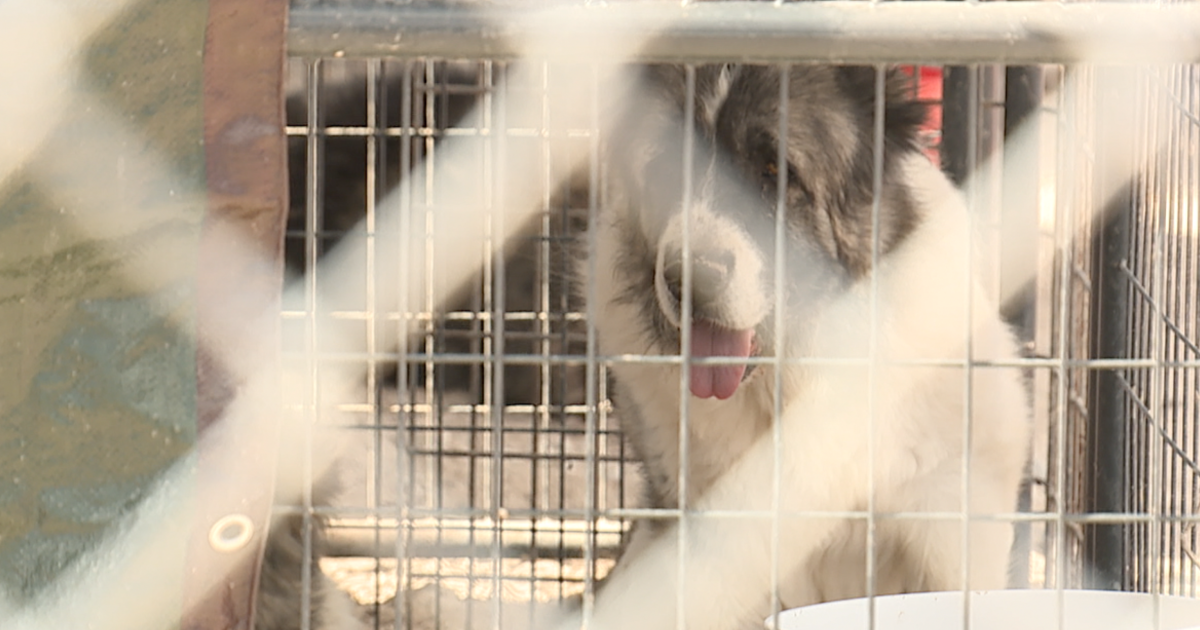- September 4, 2022
- No Comment
- 5 minutes read
13 Investigates: Money, high stakes, history behind rare dog breed at center of Nye County cruelty case – KTNV 13 Action News Las Vegas

Menu
LAS VEGAS (KTNV) — Caucasian Shepherds, also known as the Caucasian Ovcharka, or Mountain Dog, is one of the biggest dog breeds in the world–a Russian breed with a history of herding and protecting livestock from predators.
They’re most often sold as guard dogs, and 13 investigates has learned is how Vasili Platunov first encountered the breed.
“He was actually a Russian soldier in Afghanistan. And his dogs were the sniffers for landmines. And he actually was in a situation where he hit a landmine, and the dogs got in front of that landmine, took most of the hit. Now, he got blown up pretty good,” recalls Nye County Commission Chairman Frank Carbone, who says what started out as a breeding operation became a hoarding situation for Platunov.
“But this is the reason why he is so attached to these dogs,” said Carbone. “They saved his life. Now, that doesn’t mean that he should have 300 of them, but this is his passion to those animals.”
County records show Platunov’s Est-Alfa kennel was named after the dog who saved his life in Afghanistan.
The website, which has been taken down since his arrest, describes the breed as “Gifted intellectuals who think and impress with their actions, noble souls and expressive looks.”
Those kind words make it even harder to understand how Platunov and his ex-wife Oksana Higgins allegedly mistreated the dogs, allowing them to starve and endure unimaginable suffering.
“They’re big dogs. They’re loyal dogs,” said Beth Kakavulias, executive director at Desert Haven Animal Society which, until recently, was the Pahrump shelter contracted with Nye County.
As 13 Investigates first reported, Desert Haven took in 30 malnourished and injured dogs that Platunov surrendered in April.
“They’re used for protection,” Kakavulias explained, and as such, they can be worth a lot of money.
Records Platunov submitted to Nye County show his trained guard and patrol dogs sell for between $10-15,000 each.
He also said he rented the dogs out for up to $150 per day or up to $55,000 for an annual lease on a single dog.
Commissioner Carbone believes that’s partly why Platunov fought so hard to keep them.
“He was actually working with Homeland Security and another organization back east,” Carbone said. “They were working on a place to take his dogs, to start training them for Homeland Security, which would have been pretty close to 70, 80 dogs. That’s what I remember the conversation was. But as time went on, they were digging for funds and then COVID hit and that just dropped everything.”
Now that Nye County has seized the dogs after charging Platunov and Higgins with a combined 66 felony cruelty charges, they have to evaluate, rehabilitate and rehome the ones that can be saved.
“The males usually are about 200 pounds, between 180 and 200 pounds. Females are usually about 150 to 180, give or take, depending of course on the lineage,” said Kakavulias.
Photos from a breeder in Wisconsin show what a healthy Caucasian Shepherd should look like.
The dogs seized from Platunov and Higgins have a long way to go.
Kakavulias has already adopted out some of the dogs Desert Haven rescued in the Spring.
She says they need a lot of food and a lot of space with room to run and exercise.
“On the plus side, these guys aren’t aggressive towards people, but they also shy away. They don’t know what a kind human touch is.”
She says, “Their life expectancy is usually between 8-10 years, if you’re lucky. But they usually don’t make it past that because they’re so, so big.”
13 Investigates is awaiting more information from Nye County how many of the dogs they’ve had to euthanize so far and how many more will have to be put down due to health and medical conditions.
The ASPCA has a team working to help Nye County authorities.
The group sent the following statement:
“The ASPCA’s priority is to provide these dogs with medical and behavioral assessments and care with the hope that many of them will be adopted into loving homes. The ASPCA believes that all animals should be viewed as individuals and evaluated by qualified, credentialed behavior experts to determine the most appropriate outcome for each animal.”
Report a typo

